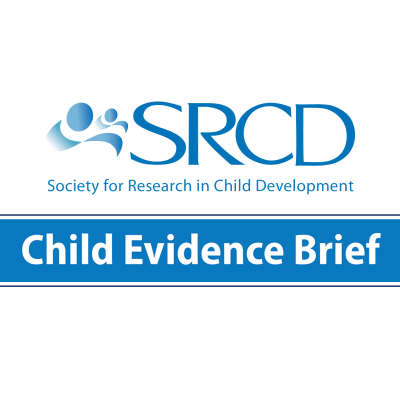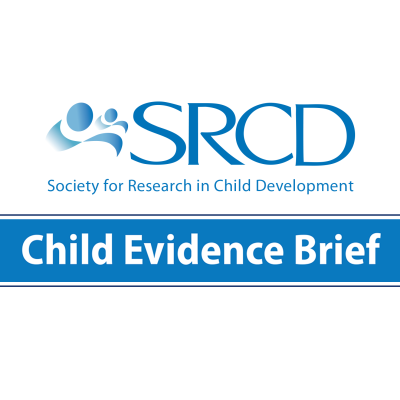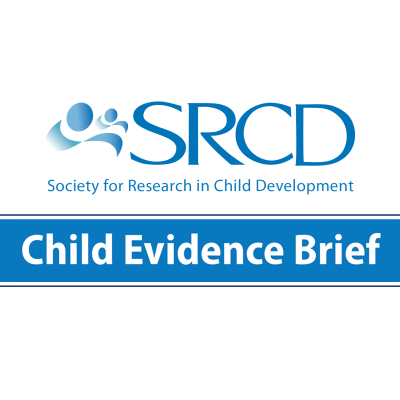How the Threat of Deportation Affects Children in Latino Immigrant Families
Social Policy Report Brief, Volume 31, Issue 3
Why Does This Matter?
Research tells us that children need safe, nurturing, predictable environments to develop in a healthy way and to thrive. Yet with recent changes in immigration policies and increased enforcement activities, children of undocumented parents, many of whom are U.S. citizens, increasingly live in fear that family members may be arrested, incarcerated, or deported. Research suggests that exposure to circumstances that produce such persistent fear and chronic anxiety entail significant risk for adverse long-term outcomes. Such adversities in childhood are powerful predictors of health conditions and early-onset mental illness.
Research indicates that chronic fear and anxiety associated with the threat of family members being deported is taking a toll on the academic functioning and psychological well-being of children in Latino immigrant households, many of whom are U.S. citizens.
Background
- One-quarter of youth under 18 in the United States are Latino; 95% of these are U.S. citizens.
- About 4.5 million children who are U.S. citizens live in families in which one or both parents are undocumented.
- While threat of deportation affects communities of various racial and ethnic backgrounds, Latinos account for approximately 95% of apprehensions by the Department of Homeland Security.
- Fear about family fragmentation is experienced most directly by children of undocumented parents, with spillover to children in Latino communities more broadly.
- Deportations and threats of deportation have increased with changes in immigration policy and implementation activities, including:
- Passage of the Immigration Reform and Control Act (1986) criminalizing hiring undocumented people and increasing enforcement and internal policing of immigrant communities;
- A directive (2009) requiring Immigration and Customs Enforcement (ICE) to maintain 33,400 immigrant detention beds daily; and
- Executive orders (2017) prioritizing prosecuting offenses at the southern border, targeting undocumented immigrants for deportation.
- The uncertainty and fear children in mixed-status families experience about parental detention or deportation has heightened as:
- The Deferred Action for Childhood Arrivals (DACA) has been repealed and remains unresolved, and
- Expiration of Temporary Protected Status approaches.
What the Research Says
- Behavioral neuroscience indicates that chronic activation of the stress response system leads to immediate and long-term problems in physical and mental health. Prolonged or excessive exposure to fear-inducing stimuli or threatening environments impairs cognitive control and learning.
- Uncertainty about family safety is linked to less use of health care services, social services and public health, nutrition, and educational programs for U.S.- citizen children of immigrant parents.
- Studies in schools indicate that for many students (especially immigrants and U.S.-citizen children of immigrants), fears about deportation or detention affect adjustment and academic progress, including:
- Increased absenteeism after ICE raids and after increased threat of enforcement;
- Symptoms of depression, anxiety or sadness, and crying over worries about the threat of family separation; and
- Disruptions in children’s ability to eat and sleep, and to focus and learn in school.
- State-level Medicaid data indicate that children of mothers who met the DACA birthdate eligibility cutoff had fewer adjustment and anxiety disorders than children of mothers who just missed the cutoff. This suggests that removing the threat and uncertainty about family safety improved mental health for these U.S.-citizen children.
Implications for Policy and Practice
- Researchers, teachers, and practitioners should understand how uncertainty and threat affect the lives of Latino children, especially those in immigrant households. To decrease the fear and uncertainty affecting children in immigrant families, policymakers can:
- Urge the U.S. Citizenship and Immigration Services to address the current backlog of more than 700,000 applications for citizenship;
- Convey clearly that all children in the United States have a constitutional right to receive free public school education, regardless of immigration status;
- Support legislation that provides a pathway to citizenship to undocumented immigrants, including parents of U.S.-citizen children, and undocumented young people brought to the United States as children;
- Communicate clearly for which health, nutrition, early childhood, and education services children and parents in immigrant families are eligible and support their access to these services; and
- Advocate for the Protecting Sensitive Locations Act (H.R. 1815 and S. 845), which would expand and improve upon current sensitive locations policies in several ways, including prohibiting agents from conducting enforcement actions within 1,000 feet of places such as schools, churches, and hospitals.
This brief summarizes a longer Social Policy Report,"Applying a Community Violence Framework to Understand the Impact of Immigration Enforcement Threat on Latino Children," by R. Gabriela Barajas-Gonzalez, Assistant Professor, Center for Early Childhood Health and Development, Department of Population Health, New York University Langone Health; Cecilia Ayón, Associate Professor, School of Public Policy, University of California, Riverside; and Franco Torres, Supervising Attorney, Immigration Legal Services Department, Catholic Charities Community Services.


